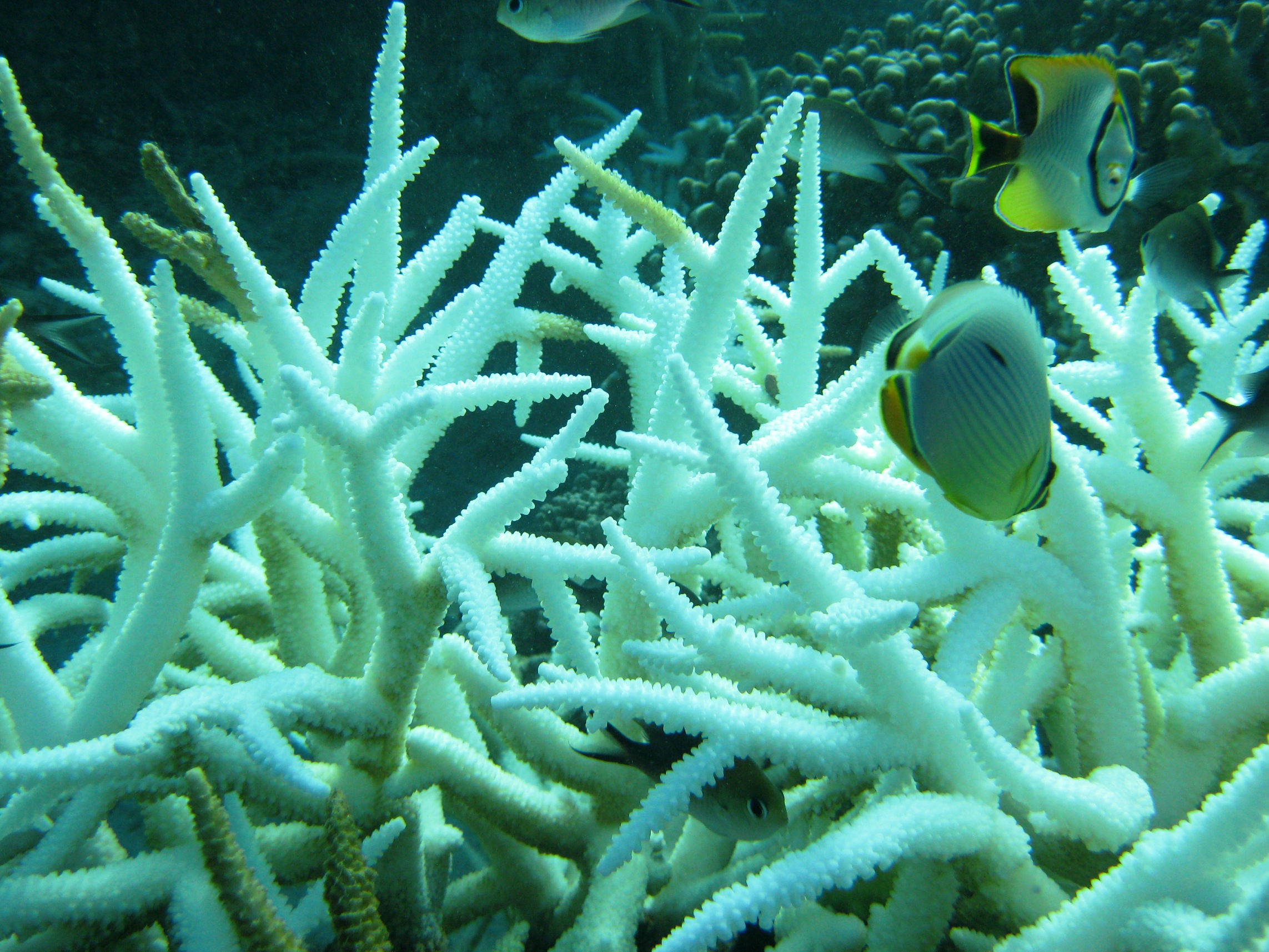Community action for sustainable artisanal fisheries
Bleached corals in Mohéli Marine Park
Targeted activities have been implemented that maintain fishing as a livelihood activity, while combatting destructive practices, easing fishing pressure on the reef, protecting critical habitats and developing alternative, yet complimentary activities:
- Establishment of a fisheries resources monitoring system: Use of surveillance sheets for establishing a monitoring protocol by fishermen and investigators. The data informs the protected area’s information system.
- support for diversification of fishing activities: feasibility studies to evaluate possibilities for developing sea cucumber aquaculture and capture and culture of fish larvae
- reviving other activities such as small-scale lobster fishing
- establishing no-take zones in the areas of the park which have been identified as crucial for protection of fisheries resources through a combination of local knowledge and scientific studies
- to discourage further offshore fishing, the application of techniques such as the use of fish aggregating devices (FADs) is encouraged
- temporary or permanent closure of the reef to octopus fishing, in order to prevent coral destruction, but also demonstrate the power of recovery and ‘spill-over’ – octopus will typically recover quickly
- Ability to align local knowledge with science to identify the best areas, times and structures to implement, such as temporary reef closures in key areas.
- Knowledge and collaboration with the fisheries sector is vital also to understand the implications; both costs and benefits, of protection measures.
The success of community-based artisanal fisheries protection measures is based on there being a tangible return within reasonable time-frames (1 or 2 seasons maximum). Alternatives take time to develop, implement and grow to where they can adequately support economic and cultural transactions involved in making such changes.
Momentum and support from communities, especially in a dynamic such as Mohéli Marine Park, where there are at least ten villages, is important to drive interest and motivation. Costs and benefits of protection are not always shared universally. Many ecosystem processes occur on scales larger than the community level. For example, closure of one reef to fishery access may benefit the neighboring community, but not that which pays the opportunity cost of the closure! All interventions must be perceived as fair and for collective benefit, over time, and at the scale of the Moheli protected area and its surrounding island communities and their ecosystems.

